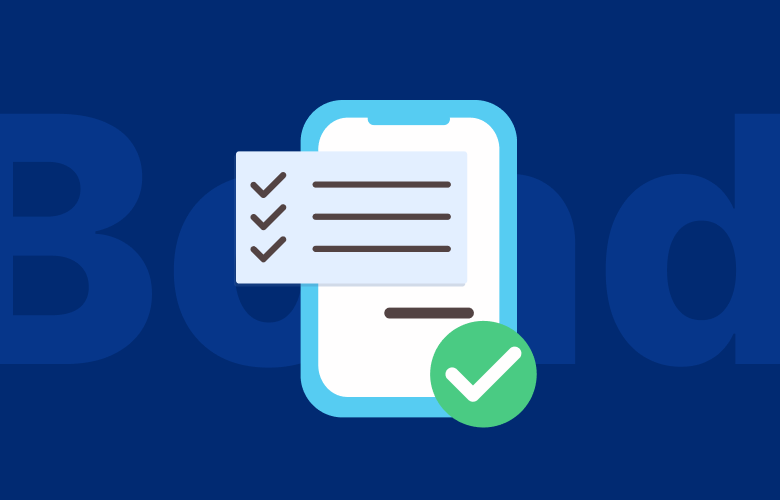What is a Bond?
A bond is a security that represents a loan from the buyer (you) to the issuer of the bond. The issuer can be a company or a government. The company/ government issues bonds when they want to raise money. In the government’s case, this money can be used to run the government’s daily operations, finance all sorts of projects for the development of the nation, repay the money borrowed from other countries and investors in the past, and much more. In the case of companies, they issue bonds to finance their operations, build new factories, for their working capital needs, etc.
By investing in a bond, you give the issuer a loan, and they agree to pay you back along with some interest payments along the way, in a fixed schedule.
Bonds offer investors a regular income stream in the form of periodic interest payments. Typically, higher quality bonds (bonds issued by well-reputed, large companies/Government/PSU, etc) will have a lower rate of return. Also, bonds with a shorter maturity or tenure will have a lower rate of return.
Now that we understand what a bond is, let’s look at its different types:
Types of Bonds
The bond issued by the company/government can come in various forms and shapes. They investors can choose the type of bonds according to their liking :
1. Government Bonds
Government bonds are issued by the Central Government. They are also known as Government Securities or “G-Secs”. These Bonds carry the highest level of safety guaranteed by the Central Government and hence do not carry any risk of default (The government can just print rupees to pay back the bond).
2. Tax-Free Bonds
As the name suggests, the interest income earned from investment in these Bonds is 100% tax exempted. These bonds are generally issued by Public Sector Undertakings (PSUs) in India.
3. Corporate Bonds
These bonds are issued by private limited companies. They are also known as Corporate Taxable bonds. The interest earned on these bonds is taxed as per the investor’s tax slab.
4. Fixed-rate Bonds
Bonds that pay a fixed interest along the way and the original amount at the end. These bond get issued for anywhere between 1 to 40 years. The interest payment can be once in a year, twice a year, or otherwise depending on the details mentioned by the company/government for that specific bond.
5. Floating Rate Bonds
These are bonds that give a different interest rate every year depending on changes in the economy and inflation
There are many more types of bonds also available such as municipal bonds, state government bonds, etc. We are just scratching the surface over here.
Why Invest in Bonds?
Bonds give you 2 potential benefits when you hold them as part of your portfolio. One, they give you a steady stream of income, and two, they offset some of the volatility you might see from owning stocks.
1. Maturity Date: Every bond has a particular end date. This date becomes extremely important as it tells you the time period you will hold your bond investment for. This date is known as the maturity date. The end date or the maturity date is decided by the Government/Company that issues the bond. At the end of this time period, the investors will get back all the money they were owed i.e. the initial amount they invested + the interest they made along the way.
2. Credit Rating: Credit rating is a grade given by Credit Rating agencies to help investors discern if the company is performing well or not. The credit rating agencies analyze the company’s financials and growth to grade them accordingly. If the company is doing well then the highest rating a Company can get is AAA. Going down the ladder you have AA, A, BBB, BB, B, C, D.
Grade D is for everyone who defaults so stay away. For a retail investor, who does not have the bandwidth to analyze each company inside out, the rating given by the rating agencies is a better and simpler indicator to follow.
3. Secured & Unsecured Bonds: Secured Bonds are bonds that are collateralized by an issuer’s asset or future cash flows. If the issuer defaults, then bondholders can claim the asset or the cash-flow generating source.
Unsecured Bonds don’t come with any collateral. If the issuer defaults, unsecured bondholders can’t claim any of the issuers’ assets. Here investment decisions are taken purely on trust in the issuer and the credit history of the issuer. During bankruptcy, secured bonds are paid before unsecured bonds.
4. Face Value & Market Price: Face value is the price at which a Bond unit is issued by the Bond issuer.
The price at which bonds are traded is called the Market price.
5. Coupon Rate & Yield-to-maturity: The Coupon Interest Rate or Coupon rate is the interest rate paid by fixed-interest security such as a bond. It is the payment towards the face value of a bond. The bond-issuing company pays it to the bondholder.
The Yield-to-maturity (YTM) is the effective interest rate on bonds. YTM will vary inversely with the market price of the Bond. The Interest rate which most accurately reflects the rate the investor will receive at the time of purchase is the YTM.
Risks Involved with Bonds
Bonds fall into the category of low-risk securities just like Fixed Deposits. However, there are a couple of risks involved. Read about them below:
1. Default risk: The loss that an investor faces when the issuer defaults (fails to return principal amount or Interest payments or both.)
2. Liquidity risk: This loss comes into the picture only when an investor wants to sell bonds before maturity. This loss is incurred by the investor when he/she finds no buyer for their bonds and hence sells them at a discount.
3. Interest-rate Risk/Market risk: If interest rates increase, the price of the Bond decreases. If the investor wants to sell the bonds at this time, he/she has to sell at a discounted price.
However, the flip side is that, if the interest rates in the economy decrease, bonds’ selling prices will increase. At such a time, an investor can make capital gains by selling his bonds at a premium to his buy price.
Disclaimer: Investments in the securities market are subject to market risks, read all the related documents carefully before investing. This content is purely for information purpose only and in no way to be considered as an advice or recommendation. The securities are quoted as an example and not as a recommendation. Brokerage will not exceed the SEBI prescribed limit. Paytm Money Ltd SEBI Reg No. Broking – INZ000240532. NSE (90165), BSE(6707) Regd Office: 136, 1st Floor, Devika Tower, Nehru Place, Delhi – 110019. For complete Terms & Conditions and Disclaimers visit: https://www.paytmmoney.com/stocks/policies/terms

